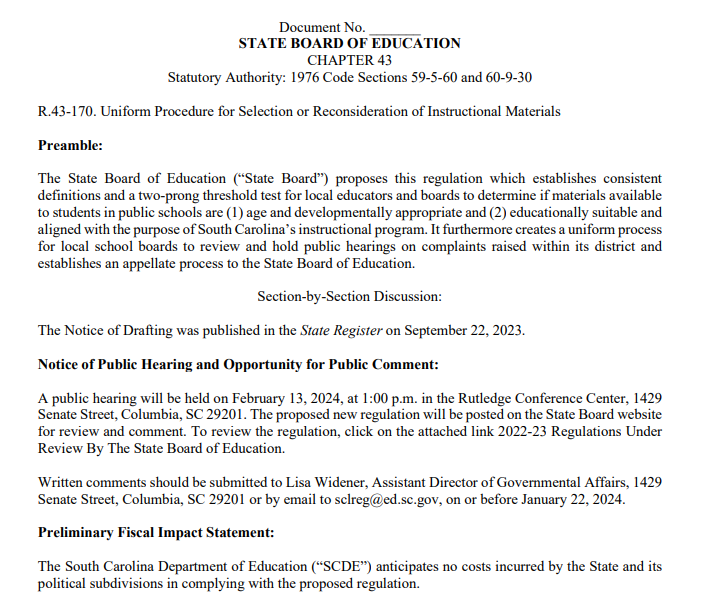Making Progress on Solving SC’s Teacher Shortage

Adam Crain
Welcome to South Carolina, Teachers of Tomorrow!
At the close of the 2017 legislative session, Governor McMaster signed into law one more method to help alleviate South Carolina’s chronic teacher shortage problem. Teachers of Tomorrow, a company that offers individuals a pathway to teacher certification will now be recognized by the South Carolina Department of Education as a valid licensure program.
The company joins seven other alternative certification programs already operating in the state. Like Teach for America, Teachers of Tomorrow combines classroom experience with robust training to move individuals from novices to licensed teachers.
As we have highlighted before, teacher shortages are a real problem in the Palmetto State. Winthrop University’s Center for Educator Recruitment, Retention and Advancement reported in January that nearly 6,500 teachers did not return to their current jobs, and it’s the students who suffer because of it.
Critical posts teaching biology, AP courses, chemistry and math are left unfilled in South Carolina’s public schools, leaving the state’s future workforce either unable to take core classes or carving out time to take classes somewhere other than their regularly attended school.
In a statement released by Teachers of Tomorrow, CEO Vernon Reaser remarked:
“South Carolina has been severely affected by teacher shortages for a long time, and we are excited to be able to help school districts quickly address these shortages. We are honored to be one of only three programs to be named in rule to help South Carolina schools find and train the teachers they need. And we do it at zero cost to the school and districts.”
Accepting another alternative licensure program is a good start to alleviating the teacher shortage, but ultimately it’s not enough. By harnessing the power of technology and innovation, South Carolina can make further progress on alleviating the teacher shortage.
One such idea is Online Course Access.
By allowing students to access courses offered from a wide variety of public and private providers, South Carolina can make further in-roads to achieving one more major goal: every course, offered to every student, everywhere.




